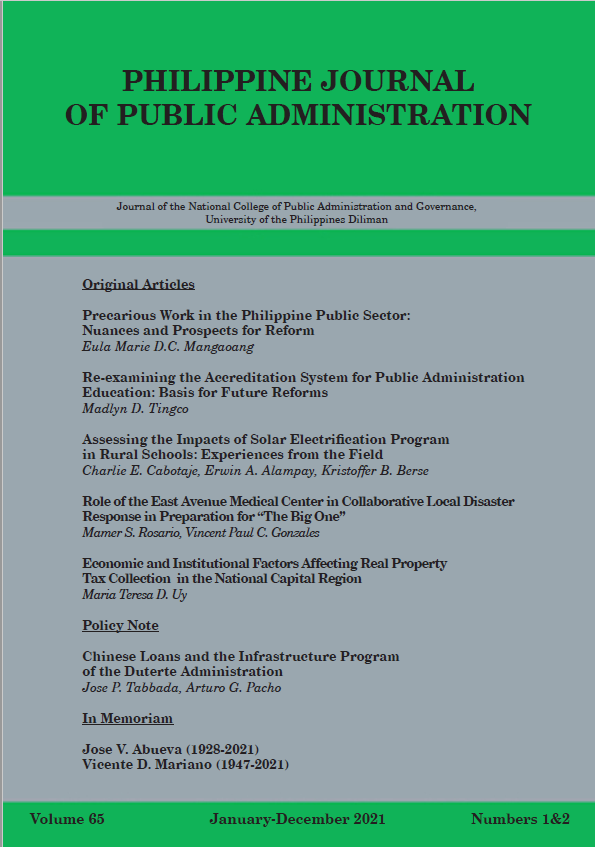Assessing the impacts of solar electrification program in rural schools: Experiences from the field
Abstract
Electricity drives development. It increases productivity, enables efficiency, and generally improves the overall quality of life. Its impact in various sectors cannot be overemphasized, particularly in the education sector. This article highlights the experiences of nine rural public schools in the Philippines as beneficiaries of a solar electrification program. It analyzes the impacts of access to electricity by looking at how the experience of the students changed, the innovations introduced in teaching, and the modifications made to administrative operations. The findings highlight that the more direct impact of electrification is the provision of a better environment for learning. It also highlights other positive externalities as well as unintended consequences of having access to electricity. The article argues that although electrification has helped expand the opportunities for other stakeholders to get involved in improving education in rural areas, social buy-in needs to be continually secured and reinforced as well as strategic collaboration to be established to leverage the limited resources of the schools together with the willingness of the community to provide additional support towards sustaining the program.
Keywords: solar electrification; rural public schools; impacts; education



